New Moody faculty enhance excellence
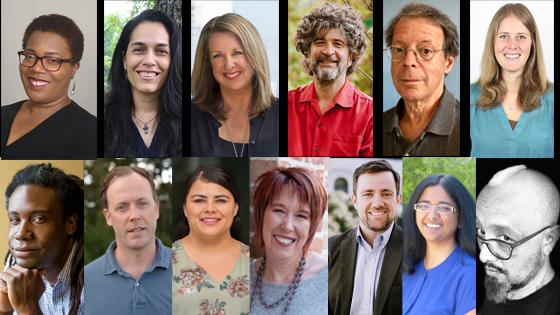
Moody College of Communication emphasizes world-changing research and life-changing teaching by continually reinforcing its team of innovative scholars and classroom leaders.
"Our commitment to exceptional scholarship and student development begins with the faculty we recruit and retain. During the past four years, we have welcomed more than 50 new, full-time faculty members, and this year’s additions continue our success recruiting the very best faculty into Moody College," said Dean Jay Bernhardt. "Their groundbreaking scholarship and real-world experiences will contribute to our mission of enhancing the human experience through communication."
As part of Bernhardt’s ongoing commitment to grow diverse talent, 13 full-time faculty members are welcomed into new positions in the 2021-22 academic year, with several taking on significant leadership positions throughout the college.
"My focus as Dean is to ensure that Moody College is well-positioned to retain our status for decades to come as the leading communication college in the world," Bernhardt said. "By recruiting these established and emerging experts and leaders, we will continue to improve and increase our impact on the diverse fields of communication."
In their own words, Moody College’s newest community members express their passion and purpose for participating in higher education.
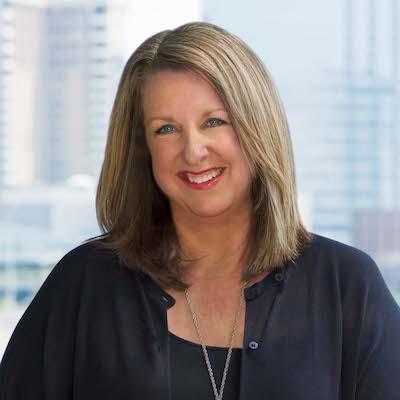
Lisa Bennett
Executive Director, The Lab; Interim Director, Texas Creative
Advertising & Public Relations
Over the course of my career, I've been a part of building multi-disciplinary teams, award-winning campaigns and successful agencies, which is why I feel incredibly fortunate to have been given the opportunity to build, launch and shape The Lab, a new experiential learning environment launching this fall.
The Lab is home to Integrated Communications Campaigns, a capstone class for Advertising & PR students. The goal of The Lab is to ensure that our students are industry ready upon graduation. It focuses on the two Moody values I believe in most: creativity and collaboration. We emphasize creative problem solving and provide students an opportunity to collaborate with clients, faculty coaches and their peers. They work on real briefs, engage with clients on a deeper level and develop integrated campaigns in an agency environment.
Since taking on this role last October, we've attracted client sponsors such as Dell, Amazon, and e.l.f. Beauty to offer projects for our students and give them the opportunity to learn firsthand about multi-faceted careers. I'm excited for all Advertising & PR students to experience The Lab and practice utilizing critical skills that will propel them into a future career.
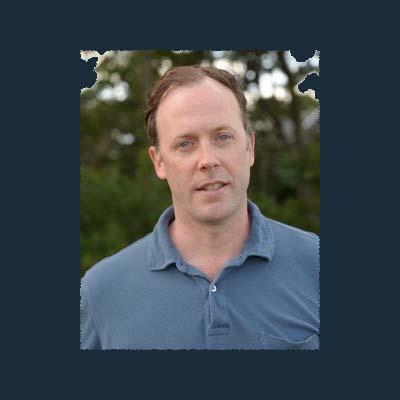
Andrew Butters
Associate Professor of Practice
Journalism and Media
I'm coming to The University of Texas after a 20-year career in journalism, about a decade of which I spent in the Middle East, ultimately as Time Magazine’s Beirut bureau chief.
But even when I was living the jet-set life of a foreign correspondent, teaching was always a core part of who I am and what I do. I was a peer writing tutor as an undergraduate at Brown University, I embraced the coaching and mentoring of my Time staff, and while living in Damascus, I designed a curriculum to train Arab-journalists for an English-language, reform-minded monthly magazine, Syria Today. And since leaving the Middle East, I've been a fellow at the Reuters Institute for the Study of Journalism at Oxford University, taught narrative nonfiction at New York University’s Arthur J. Carter Institute, and most recently was a Lecturer in Political Science (and fellow of Morse College) at Yale University.
What I hope most to do as a teacher is to awaken a sense for the adventure, the strangeness, the unexpected that is around us in all our lives right here, right now, without having to get on a plane to find it. At the same time, my teaching and work dismantle the constructs and fears our culture builds around "the other," particularly the politicized and ahistorical distinctions between Eastern and Western civilizations. The end result should be a method and mindset, rooted in humility and courage, for losing oneself, for finding oneself, and for doing it over and over again.
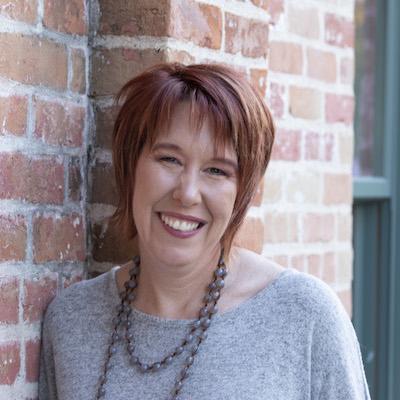
Kathryn Clapsaddle
Assistant Professor of Practice
Speech, Language, and Hearing Sciences
I was raised by public school educators. Following in their footsteps, my first job after graduate school was as a public school speech-language pathologist. I've seen first-hand the impact that K-12 public education can have in the lives of children with differences in abilities.
I serve students in the Department of Speech, Language, and Hearing Sciences through clinical instruction -- growing future clinicians, teachers, and researchers -- and I strive to develop professionals with a thirst for professional learning, an understanding of how to apply the research in our field to their clinical practice, and a strong sense of purpose and responsibility in their service to individuals with communication disorders.
I emphasize service as a core clinical value, and that includes service to clients, families and communities. As a clinician, I saw the best clinical outcomes when I partnered with all three. People learn and grow when we serve alongside them, rather than when we do something "to" them or "for" them. And a true partnership requires reflecting on the world from your partner’s perspective and collaboratively finding solutions that align with their resources, values and identities.
As early career clinicians, we are often taught to be confident in our expertise, yet our expertise is truly limited to our own clinical and world knowledge. Seeking to understand and embracing the value of the expertise of those we serve not only makes us more effective speech-language pathologists -- it also helps us be better members of our world.
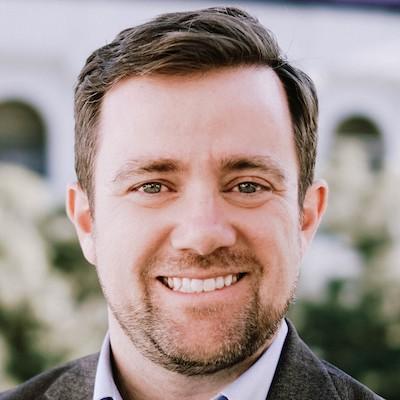
Geoffrey Coalson
Clinical Associate Professor
Speech, Language, and Hearing Sciences
We are fortunate at the Arthur M. Blank Center for Stuttering Education and Research to have assembled a close-knit team of teachers, supervisors, and researchers with a similarly straightforward philosophy: effective communication is achieved not by fluency, but by agency and authenticity. I can attest, as a person who stutters who operates within research forums and classrooms, that pursuit of fluency often comes at the expense of both.
With the amount of data published in an evidence-based field such as speech-language pathology, particularly stuttering, it is vital that future scholars learn to critically appraise the information they receive. It is also critical that students learn to honor the complex experiences of children and adults who stutter, and their families, when designing a program of research. Human behavior -- particularly human communication -- is inherently messy, and this messiness should be valued.
I have been fortunate to receive excellent research mentorship throughout my academic career by Dr. Courtney Byrd, and by virtue of this remarkable experience, I am able to adopt a similar ethic of care when mentoring young scholars. Our most critical currency is an earnest, empathetic interest in a student as a person. Establishing this trust is necessary to endure the challenges and occasional tedium of the scientific process, and not coincidentally, integral to build rapport during clinical and classroom interactions.
As the Arthur M. Blank Center continues to expand its reach across the US and beyond, our research will continue to examine not just the long-term benefits via clinical trials, but compare efficacy across sites, languages, and cultures. We are similarly excited to begin exploring the benefits of clinical intervention not just to self-reported quality of life, but to examine its potential impact on higher-level cognitive and affective processes necessary for full and fulfilling participation in life.
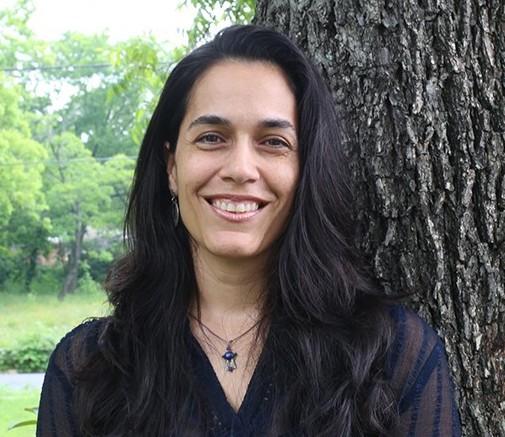
Mirasol Enríquez
Assistant Professor; Director, Latino Media Arts and Studies Program
Radio-Television-Film
My father was a graduate student for the majority of my childhood so I grew up with this idea that you just go to school until you can't go to school anymore. As I continued in my own academic career, I learned very quickly about the many obstacles that women, BIPOC, and members of so many underrepresented groups have to overcome in order not only to access, but also to succeed in institutions of higher education. Here at UT, I hope to help create an environment where Latina/o/x students feel at home in the university.
When students feel supported and aren't struggling to belong, it's so much easier to focus on the work that they are here to do. I hope to provide resources that will make it easier for our brilliant students to create the stories and share the knowledge that celebrates and gives back to their communities in ways that only they know how to do.
A lot of my research revolves around the recovery of Latina filmmakers' histories, which have been marginalized not only by dominant film histories, but by women's and Latino film histories, as well.
So I ask my students to consider not only who's telling the story and how it's being constructed, but also how our own privilege in the academy can function to perpetuate inequality. Students, scholars, educators ... we are all in this together, and we all have a lot to learn.
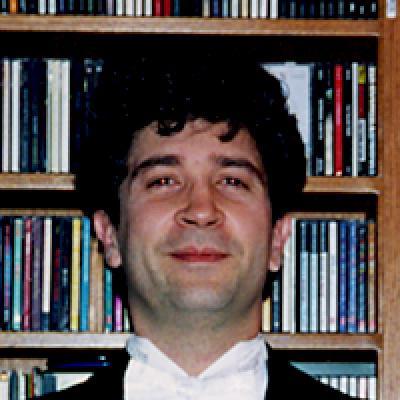
Raoul Hernandez
Assistant Professor of Instruction
Journalism and Media
In 2015, during my lengthy tenure as Music Editor (1994-2021) at homegrown newsweekly "The Austin Chronicle," professor Renita Coleman emailed me about speaking to her ever-popular Lifestyle Journalism class. One single guest appearance there convinced me that the best part of my career – working with young writers – could be transferred and laser focused to far greater effect in a university setting.
Practically speaking, superior writing and reporting adhere to a small group of principles anyone can master with sufficient dedication. My purpose is to reveal those universal truths and stoke a passion for them in every course I teach.
I continue to practice journalism locally and nationally, in part, to help students into the field. A foundational song in country, folk and gospel, "Will the Circle Remain Unbroken," poses less of a question and more of a mission statement to all walks of life, and so too to modern-day journalism: writers and reporters help each other as they themselves received instruction and mentorship. I tell every class, "I am you, and you are me." And we are all together, as John Lennon so memorably sang.
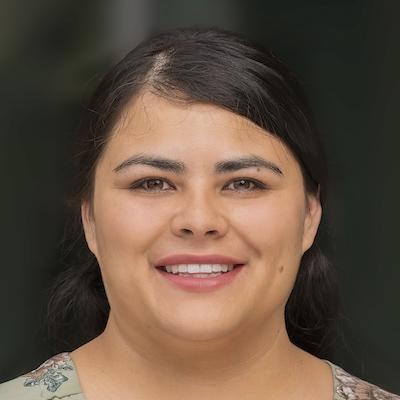
Roselia Mendez Murillo
Assistant Professor
Communication Studies
Through my research, I work to serve Latinx immigrant families. To do this, I try to develop strong relationships with members of their community, listen and learn from community members, incorporate their needs and insights into the research questions and design, and translate my findings in ways that can benefit the community. In working toward this goal, I invite students to participate in the entire research process so that they may become more aware of their community while honing their research skills.
I rely on Latinx communities’ stories and unique perspectives to develop and apply communication theory, so that it is more inclusive and relevant to my community. My own lived experience has helped inform my research as it allows me to identify the gaps in understanding the systematic barriers and inequities that can hinder the health of immigrant Latinx families.
My goal is to conduct research that uncovers assets and resources at multiple levels that can reduce academic and health inequities among Latinx communities in the United States.
My research then informs my teaching because I provide students with different cultural and theoretical perspectives. My aim is for students to engage in discussion and critical thinking regarding worldviews outside of their own.
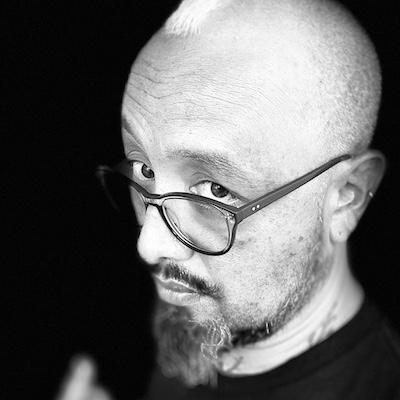
Nik Palomares
Professor
Communication Studies
Communication practice is a focus for me, as much as communication theory is. Students have diverse career goals, and I try to promote critical thinking skills and other tacit knowledge that will set them up for success as they enter the workforce or plan for future studies in advanced programs.
My work has increasingly become more applied with a focus on mental health and how communication processes affect psychological wellbeing. My work has always had a focus on critical communication phenomena, such as how people understand others’ goals in conversation, but more recently have I made specific strides in my research to address applied agendas that matter in practical ways as much as they matter in theoretical ways. I have recently started to investigate cyberbullying and how victims process bullying messages.
I teach research methods and require students to design their own studies and collect data as part of the course because methods are best learned by using them in bonafide research.
I want students to be able to take what I am teaching them and apply it in useful, helpful ways to their everyday lives.
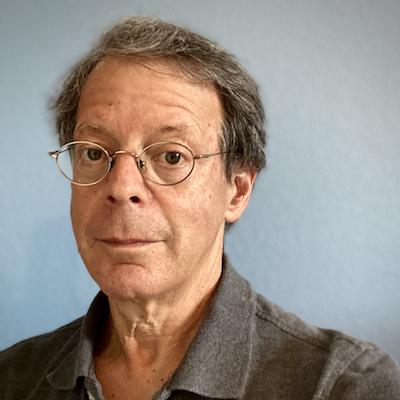
John Schwartz
Professor of Practice
Journalism and Media
Working in journalism is all I’ve done professionally for decades, and so I hope to draw on the lessons I’ve learned every day to help share my excitement for the field with students. I am a newcomer to teaching, after working in journalism for 40 years. I am very excited about teaching and grateful for the opportunity to start a new career.
This semester I will be part of a team that teaches "Reporting: Words," an introduction to journalism course, as well as a course in environmental journalism. In coming months, I will also be developing a course for non-journalism majors for the sustainability institute.
I hope that students will develop the ability to approach new information and difficult topics fearlessly, and I want them to be able to write about what they have learned with directness and style.
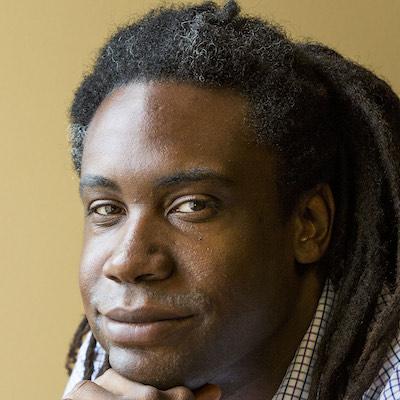
Raymond Thompson
Assistant Professor
Journalism and Media
I believe in an approach to journalism that is infused by knowledge. In the classroom, students will be encouraged to think critically. I believe that learning how to question one’s motivations and applying those investigations to new angles of inquiry is central to a journalistic practice.
I will be teaching Visual Communication and developing a course that focuses on the role of the archive in journalistic and photographic practice. Seeing the way photojournalism functions outside the classroom is vital. I believe that students should engage their local communities as both a place to share work and for them to consider the role visual journalism can play in improving public life.
By building on my own personal creative experiences and explorations as a photojournalist and artist, I want to help students learn how to explore and expand their role as contemporary imagemakers.
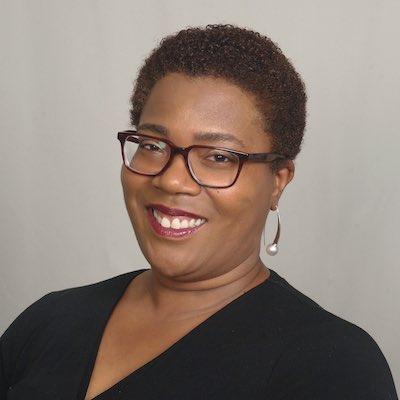
Natalie Tindall
School Director and Professor
Advertising & Public Relations
Care, compassion and concern guide my work and interaction with students. I believe that classroom spaces can be a place for change, and that a classroom is a safe place for experimentation and failure.
My teaching philosophy aligns with my research beliefs. My research has always centered on diversity and difference. Over time, I may dig into new places, looking for untapped veins of topics to study; however, I always drift back to looking at and considering how those who are marginalized in whatever way experience public relations as either a practitioner or a public.
Dealing with and recovering from the pandemic with an ethic of care, compassion and knowledge of the socioeconomic realities universities face is the most urgent charge every academic leader faces. No one is coming out of COVID-19 without being changed in some way.
We have not had respite time or space to reconsider priorities and adjust for the future. Leading and guiding through COVID-19, as well as leading during a time of heightened discussions and action regarding social matters, accessibility, injustice, climate change, and industry disruption provides all of us with exciting opportunities to revise, reshape and create new futures.
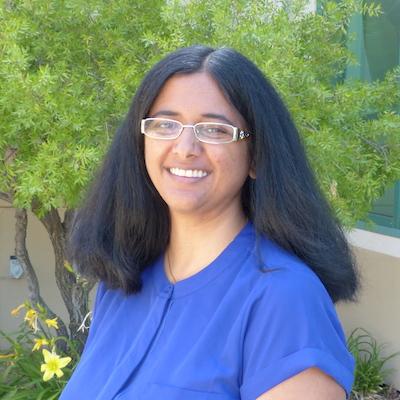
Anita Varma
Assistant Professor
Journalism and Media
I began working in classrooms 20 years ago, and my first involvement with classroom instruction was as a teaching assistant for a second grade math class. What amazed me was how curious and enthusiastic the students were, and how excited they became when they had "aha!" moments of understanding. These "aha!" moments continue through all kinds of educational settings and remain my favorite part of teaching.
I treat teaching as a conversation, during which students develop justifications for stances on ethical issues - including stances that differ from their own.
My research focuses on the role of solidarity in US journalism, and one of my favorite classroom activities is to ask students to brainstorm with me about what solidarity means, and what it doesn't mean. What constitutes genuine solidarity, beyond virtue-signaling? What role does solidarity play in our current moment?
I hope my students will play a pivotal role in improving media representations of marginalized communities. An ethic of solidarity offers a place to start.
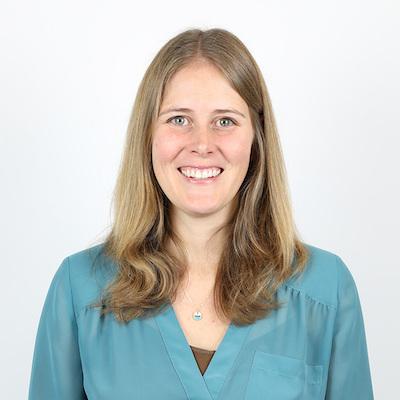
Lindsey Wineholt
Clinical Assistant Professor
Speech, Language, and Hearing Sciences
Recognizing and accepting cultural and linguistic differences is an important part of building empathy, which is essential for all clinical care providers.
As an English-Spanish bilingual therapist, I emphasize the importance of acknowledging and embracing not only linguistic diversity but cultural diversity within our patient population. It is important to see the person within their family and community systems so that you can provide interventions that will sustainably meet their needs.
I provide clinical instruction each semester to graduate student externs in the speech-language pathology program. In our clinic, students conduct evaluations and provide treatment to individuals with cognitive-linguistic and/or swallowing difficulties due to brain disease or injury.
I aim to provide a space that helps future speech-language pathologists understand how to interact and define their role with other healthcare professionals, to provide person-centered care to patients and their families, and to provide research-based interventions that are individualized to meet a person's needs. In their externships, students are learning to use their book knowledge and tweak it to meet patients and families where they are and help them grow to meet their goals.
